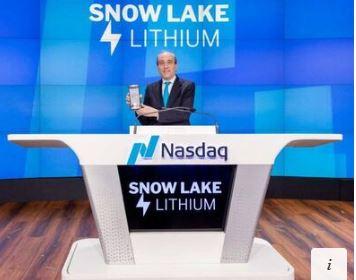After so many years worth of scientific warning bells about climate change, there is finally some urgency to public policy in Canada and around the world to start addressing the changes that need to be made.
For instance in the last federal budget there was money set aside for electric vehicle (EV) charging stations.
Not surprisingly there was plenty of commentary about how woefully inadequate it was in respect to the massive undertaking required to convert the country’s automobile population to electric.
That’s just one of countless examples that society will be facing if we are to hit net zero emissions by 2050.
Since the pandemic has raised the general level of awareness about the concept of supply chain, it’s now easier for everyone to understand what’s at stake if there is a dramatic shift in production of any kind.
The transition necessary to switch the 1.4 billion internal combustion automobiles on the world’s roads to electric vehicles is going to make the pandemic-inspired supply-chain disruption look like nothing more than a clean-up on Aisle 2.
That said, there are obvious economic development opportunities to be had in such a massive transition for jurisdictions that have the foresight to take advantage.
Could it be that the day is approaching that the "Manitoba advantage" of cheap, renewable hydroelectricity will finally start to manifest itself?
Efforts to capitalize on that in the past have sometimes been half-baked. A few years ago there was plenty of chatter about Facebook exploring the idea of building a large server farm in Manitoba attracted by just cheap power, only to be stymied by the lack of a few million dollars worth of commitment to provide water and waste-water servicing.
Other than the construction of those very hydro generating stations, Manitoba seems rarely to be the target of large scale greenfield developments.
But why not Manitoba?
Maybe the net zero impetus can change that.
The recent spike in gasoline prices has made everyone think more about EVs. But the recent education we’ve all received about supply-chain dynamics has given everyone pause to think about the stuff needed to make those vehicles and where to get it.
Philip Gross has thought a lot about that. He’s the CEO of a small mineral exploration company called Snow Lake Resources, which does business as Snow Lake Lithium Ltd.
A key component of the batteries needed for EVs is lithium. There’s only a tiny amount actually mined in North America, and none that is processed here.
Snow Lake Lithium has a 225 square kilometre property near Snow Lake where it has had a couple of drills working non-stop since January.
It’s still some time away from being able to confirm the lithium resource warrants investment in production, but Gross said in a recent online question and answer session with investors that he’s "confident lithium will be discovered".
But even before that, Gross said he is fully engaged in the process of finding a joint venture partner to build a billion dollar lithium processing facility near Winnipeg. It has not been confirmed but the suggestion is that it could be located at the CentrePort Canada Rail Park development.
The company is already planning to build the first all-electric lithium mine in the world.
Gross touts the cheap hydro power and excellent location, the same basic advantages the province has enjoyed since the beginning of the last century when the first hydro generating station was built.
During the pandemic the province created the $20 million Manitoba Mineral Development Fund, which now grants about $2 million per year to northern mineral and community economic development projects.
Snow Lake Lithium was just granted $157,000 from that fund.
Wolfden Resources Corp., a nickel exploration company, also just received $300,000. Its vice-president of exploration, Don Dudek, recently told the Free Press that the MMDF funding "helps justify spending money in Manitoba versus somewhere else."
Obviously incentives play a factor in economic development in every region on earth.
From a political perspective those tools fall in and out of favour, but Jessica Ferris, who runs the fund (on behalf of the Manitoba Chambers of Commerce which has a management agreement with the province) said there has been a marked increase in interest in the fund from exploration companies.
The province has subsequently committed to continuing to finance the fund with six per cent of tax revenue collected from the Mining Tax Act.
Lithium is not extant everywhere or there would not be a concern from auto makers as to where to source it.
If Snow Lake Lithium and/or the handful of other companies are successful in their Manitoba explorations, one hopes that provincial policy makers do what’s necessary to stake Manitoba’s claim to this important element of the looming new supply chain.
martin.cash@freepress.mb.ca
